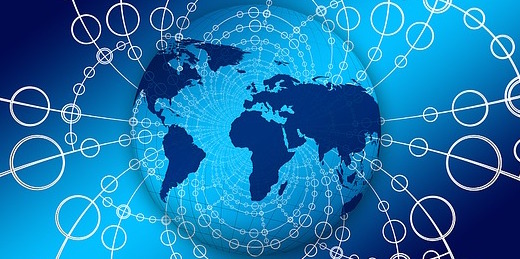Dr. Nasser Saidi’s comments appeared in an Arab News article titled “Electrical transmission line connecting Afar in Saudi Arabia to Yusufiya in Iraq inaugurated” published on 24th June 2023.
The comments are posted below.
Crucially, the agreement underscores part of what Nasser Saidi, Lebanon’s former economy and trade minister and founder of Nasser Saidi & Associates, calls “the regionalized globalization by the GCC.
“Integrated electricity grids, such as between Saudi and Iraq, result in greater power efficiency, improved management of electricity grids and network economies, lowering costs for all the countries involved,” he told Arab News.
“It allows the creation of a GCC-augmented electricity market and electricity trading across borders. In parallel, Saudi, the UAE and other GCC countries are heavily investing in renewable energy (mainly solar) for their power generation,” he said.
“Eventually, the GCC can export solar-based electricity green energy to not only neighboring countries (Iraq, Jordan, Egypt and Yemen) but also to India and across North Africa into Europe. Already, a GCC-India undersea electricity connector is planned. A new energy infrastructure map is emerging.”
There also, said Saidi, wider possibilities and vision for the agreement that have the potential as stated by Prince Saud and Al-Mitiwiti to garner greater energy security and economic benefits for the region.
“The integration of basic infrastructure — water, electricity, transport and logistics (ports and airports) — is a major building block of greater economic integration between the GCC and its regional partners, enabling the deepening of regional trade and investment links,” Saidi explained.
He added: “Infrastructure integration fosters economic development. It creates jobs in countries such as Iraq, Jordan, Egypt, Lebanon and Syria that have traditionally been reliant on exporting labor, helping them combat the present brain drain.”
Moreover, as Saidi stressed, the greater integration of these countries with the GCC enables partners to participate in global value chains through the region, generating higher value exports (rather than low-value commodity exports such as phosphates) and diversify their economies.
All of this is taking place during a time of great change for world energy markets.
“The GCC countries are now pursuing an active international trade and investment strategy leading to ‘regionalized globalization’, at a time when the rest of the global economy is fragmenting and there is attempted US, EU and allies decoupling from China,” he added. “Strategically, regionalized globalization can lead to greater geopolitical stability.”






